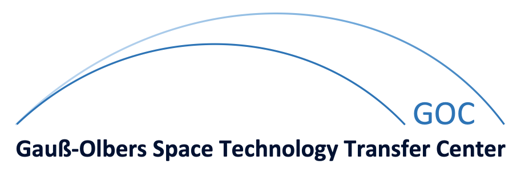iJOIN
| Interworking and JOINt Design of an Open Access and Backhaul Network Architecture for Small Cells based on Cloud Networks |  |
Future mobile networks will have to provide an exceptionally greater traffic volume in the near future, expecting an increase of up to 500-1000 times today’s throughput by 2020. Since the improvement in the transmission rate obtained with physical layer techniques is limited, the best solution to increase the system throughput is by spatial reuse. In this sense, the use of very dense, low-power, small-cell networks with a very high spatial reuse appears to provide a promising option to handle future data rate demands. Nevertheless, this approach faces several challenges: first, small-cell deployments will require a high degree of coordination due to strong inter-cell interference. Furthermore, heterogeneous backhaul solutions will be used to connect small-cells and core network, but so far, access and backhaul are individually designed and therefore not optimised jointly.
iJOIN introduces the novel concept RAN-as-a-Service (RANaaS), where RAN functionality is flexibly centralised through an open IT platform based on a cloud infrastructure. iJOIN aims for a joint design and optimisation of access and backhaul, operation and management algorithms, and architectural elements, integrating small-cells, heterogeneous backhaul and centralised processing. This solution will optimise the RAN system throughput and provide services instantly and efficiently in cost, energy, complexity and latency wherever and whenever the demand arises. Additionally to the development of technology candidates across PHY, MAC, and the network layer, iJOIN will study the requirements, constraints and implications for existing mobile networks, specifically 3GPP LTE-A.
The Department of Communications Engineering mainly focuses on the theoretical framework and basic investigations of In-Network Processing algorithms and the integration and implementation of In-Network Processing algorithms in the iJOIN architecture. Furthermore, it leads the Work Package 2 „Holistic PHY Layer Design for Backhaul and Access“.
iJOIN is an FP7 STREP project co-funded by the European Commission under the ICT theme (Call 8) of DG CONNECT and the consortium consists of 12 internationally acknowledged partners (operators, vendors, manufacturers, cloud-infrastructure providers, and universities)
More information is available on the iJOIN webpage.
Details
| Duration: | 11/2012 - 04/2015 |
| Funding: | European Union |
| Research Focus: |
Distributed Processing/In-Network-Processing
Cooperative Communication Communications - special topics |
| Subsequent: | TACNET 4.0 |
Publications
 1 | 2
1 | 2 -
Comparative Study of Distributed Consensus-based Estimation Schemes for Small-Cell Networks
BibTEX

D. Wübben, H. Paul, B.-S. Shin, G. Xu, A. Dekorsy
European Conference on Networks and Communications (EuCNC 2014), Bologna, Italy, 23. - 26. June 2014 -
Decoder Implementation for Cloud Based Architectures
BibTEX

D. Wübben, H. Paul, P. Balleydier, V. Savin, P. Rost
European Conference on Networks and Communications, Bologna, Italy, 23. - 25. June 2014 -
Cloud Technologies for Flexible 5G Radio Access Networks
BibTEX

P. Rost, C.J. Bernardos, A. De Domenico, M. Di Girolamo, M. Lalam, A. Maeder, D. Sabella, D. Wübben
5G Special Issue of IEEE Communications Magazine, Vol. 52, No. 5, pp. 68-76, May 2014, DOI -
Fast Distributed Consensus-based Estimation (Fast-DiCE) for Cooperative Networks
BibTEX

G. Xu, H. Paul, D. Wübben, A. Dekorsy
International ITG Workshop on Smart Antennas (WSA2014), Erlangen, Germany, 12. - 13. March 2014 -
Reduced Overhead Distributed Consensus-Based Estimation Algorithm
BibTEX

B.-S. Shin, H. Paul, D. Wübben, A. Dekorsy
First International Workshop on Cloud-Processing in Heterogeneous Mobile Communication Networks (IWCPM 2013), co-located with IEEE Globecom 2013, Atlanta, USA, 9. - 13. December 2013, DOI -
Heterogeneous Backhaul for Cloud-Based Mobile Networks
BibTEX

J. Bartelt, G. Fettweis, D. Wübben, M. Boldi, B. Melis
First International Workshop on Cloud Technologies and Energy Efficiency in Mobile Communication Networks (CLEEN 2013), 2013 IEEE 78th Vehicular Technology Conference (VTC Fall), Las Vegas, USA, 2. September 2013, DOI -
In-Network-Processing for Small Cell Cooperation in Dense Networks
BibTEX

H. Paul, B.-S. Shin, D. Wübben, A. Dekorsy
First International Workshop on Cloud Technologies and Energy Efficiency in Mobile Communication Networks (CLEEN 2013), 2013 IEEE 78th Vehicular Technology Conference (VTC Fall), Las Vegas, USA, 2. September 2013, DOI -
Challenges of designing jointly the back-haul and radio access network in a cloud-based mobile network
BibTEX

C.J. Bernardos, A. De Domenico, J. Ortin, P. Rost, D. Wübben
Future Network & Mobile Summit 2013, Lisbon, Portugal, 3. - 4. July 2013 -
Distributed Consensus-Based Linear Estimation with Erroneous Links
BibTEX

H. Paul, B.-S. Shin, A. Dekorsy
VDE/ITG International Workshop on Smart Antennas (WSA) 2013, Stuttgart, Germany, 13. - 14. March 2013
 1 | 2
1 | 2 






